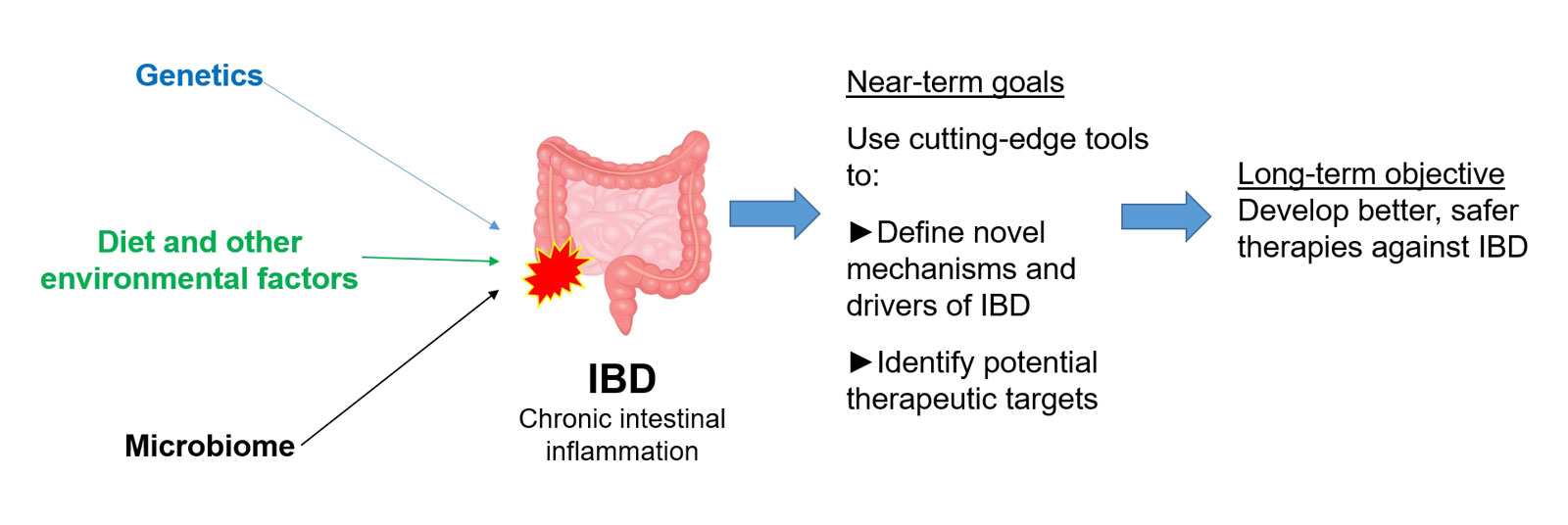Teaming for Interdisciplinary Research Pre-Seed Program
Mechanisms and Drivers of Inflammatory Bowel Diseases

Inflammatory bowel diseases (IBD), such as Crohn’s disease and colitis, have become urgent public health concerns, affecting 1.6 million Americans with an additional 70,000 new cases each year. IBD are lifelong conditions, marked by chronic inflammation of the intestinal tract, abdominal pain, diarrhea, weight loss, and other debilitating symptoms. Currently, the complex mechanisms behind IBD, and the reasons for their increasing prevalence in developed countries, are poorly understood. As a result, treatments for IBD remain limited, mostly confined to anti-inflammatory drugs and biologics, which have multiple negative side effects and to which patients may develop resistance. Most patients eventually require highly invasive surgery to remove inflamed intestinal tissue, which still does not cure the underlying disease. This interdisciplinary group has been assembled to address the critical research gaps surrounding IBD. Through our efforts, we aim to improve our collective understanding of IBD, their genetic and environmental origins, and identify new therapeutic targets to treat patients with these conditions. Our long-term goal is to develop effective, safe therapies for IBD that would drastically improve patient qualities of life.
Team Lead
Rob Pazdro
Department of Foods and Nutritions
rpazdro@uga.edu
Team Members
Claire de la Serre
Department of Foods and Nutrition
Emily Noble
Department of Foods and Nutrition
Kaori Sakamoto
Department of Pathology
Wendy Watford
Department of Infectious Diseases
Kaixiong Ye
Department of Genetics
